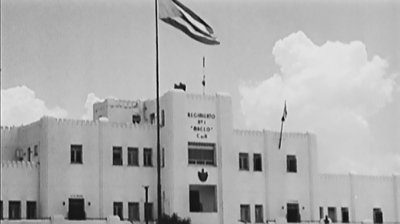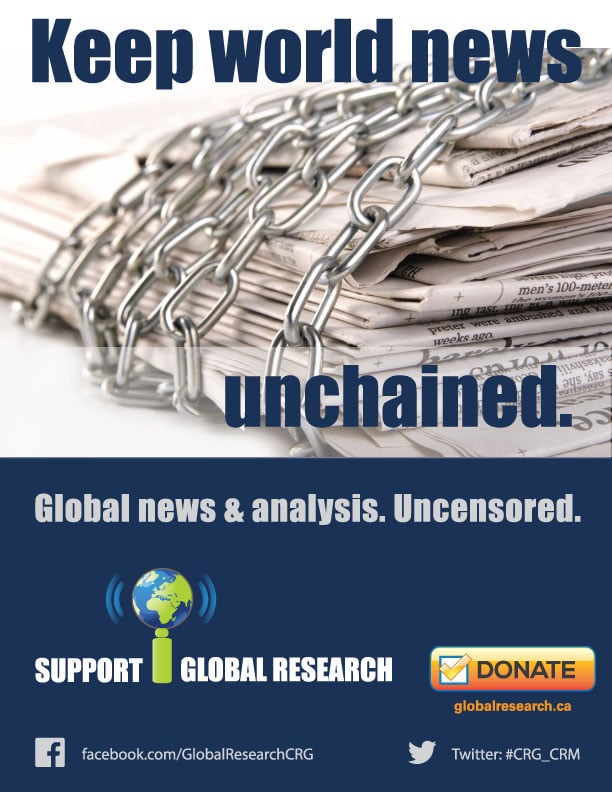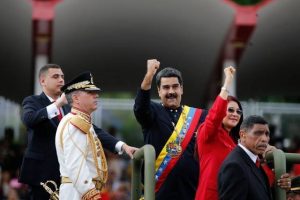Cuba’s July 26, 1953 Moncada Attack Anniversary – An Opportunity for Reflection Today

Note to readers: please click the share buttons above
When we remember historical events we actually have two things on our minds: the event itself and the relevance of the historical event. We usually end up talking about the event and we forget why the event is important today.
We could talk at lengths about the Moncada garrison attack of July 26, 1953 in Cuba that attempted to remove the dictatorship of Fulgencio Batista (image on the right).

We could relate all the details of the logistics of the attack on the Moncada garrison, how getting lost in the streets of Santiago may have contributed to the failure of the attack, or how many revolutionaries were killed in the attack. But then the next level of importance of the historical, factual event is the significance of the event itself.
Why is it important to remember it today?
Remembering another historical event, recently I wrote about the significance of the independence of Venezuela of July 5, 1811 and how that process started on April 19, 1810 until it got formalized one year and three months later. I emphasized that the tools that the Spanish colony used to submit Venezuela were sanctions, harassment, military threats, call to mutiny, and an economic blockade. These were actually spelled out in the Act of Independence of July 1811. [1]
I remarked that today a different empire uses those same tools to destroy the Bolivarian Revolution.
That is what makes the recollection of the event important. The knowledge that maybe we have not won the struggle, but that we have only won a battle and the struggle continues, as we often chant on the streets.
The Moncada attack led to the triumph of the Cuban revolution on January 1, 1959. That marked another stage of the struggle that continues today in Cuba.
Comparing historical events is also important and enlightening.
Almost 40 years after the Moncada attack, another attack occurred in Latin America that changed the political paradigm in the region, although, like the Moncada attack, it did not succeed at the time.
On February 4, 1992 there was also a failed attempt to take control of the corrupt government of Carlos Andres Perez in Venezuela. Hugo Chavez could not seize the government at that time but he raised the awareness of Venezuelans and started a revolutionary process that was not only possible, but also necessary. Following his arrest, he later changed his tactic from an armed capture of political power to a victory for the presidency through an electoral process in 1999. That in fact set an example in Latin America.
If the 1950s to the 1980s were the decades of resistance for Cuba and other Latin American countries, the 1990s – following the collapse of the Soviet Union, and maybe because of the collapse of the Soviet Union – marked the beginning of a decade of resistance through Latin America to this day – resistance against the hegemony of the U.S. empire and the curse of imperialism.
I will not even refer to the December 17, 2014 as an important date for Cuba, when the possibility of standard relations between the U.S. and Cuba could have had a good start, because in the current Trump era nothing has really changed; the economic harassment and blockade continues.
There are many memorable dates that mark Cuba’s rich history from the wars of independence from Spain to the long resistance to U.S. domination that culminated with the true independence on January 1, 1959, but today Cuba is not alone fighting the empire.
Today, Cuba, Nicaragua, Venezuela, Bolivia are progressive constitutional and democratic countries, while Honduras, Brazil, Ecuador have been taken over with fraud and treason by the rightwing.
And there lies the importance of remembering historical events. We are forced to remember the context in which those events have occurred, and learn from it.
The relevance of objective conditions
I don’t like to think of a living revolution as remaining static because that is unrealistic. Nothing human can be static. Nor I like to speak of a revolution as growing because that which grows will eventually get old and die.
I like to think of a Revolution as an evolving, transforming or unfolding process. But more importantly, I believe that evolution is a process that occurs within a context. In other terms, we can say that Revolution is a process that takes into account the objective conditions. The objective conditions were overwhelmingly in favour of an uprising on July 26, 1953. Frankly, not only in Cuba but also in many other countries in Africa and Latin America like Che Guevara clearly believed and died for.
Domestically, these countries experienced autocratic governments, high level of political repression, torture, poverty, lack of proper healthcare, lack of education, diseases, high infant mortality; ultimately, no real independence or sovereignty. Internationally, the reality has been an unrelenting U.S. government interference in domestic affairs to establish puppet governments that favoured the empire.
In 1992, the objective conditions that Chavez analyzed were very similar in Venezuela therefore an uprising was justified.
I am tempted to say that armed uprisings were also necessary – at a time of limited alternative means of communication – as tactics in order to raise the awareness of the population.
Once that goal was achieved then the electoral process could also be considered as the path to government. Chavez did that in 1998 and several Latin American countries have also chosen this path and have elected progressive governments. The earlier attempt by Allende was brutally repressed with the results we all know.
By observing revolutionary processes there seem to be a recurrent constant that once the domestic social reality improves, the international reaction – and by “international” I mean the imperially imposed reaction – gets worse, more aggressive, more destructive in its attempt for regime change. This is what we are witnessing in Latin America, particularly in the case of Venezuela and Cuba.
Venezuela
Venezuela has undergone many challenges vis-à-vis the empire in order to defend the Bolivarian Revolution and its social gains. It is succeeding socially and politically while it is struggling economically because of crippling sanctions and financial U.S. blockade.
Today, having neutralized the rampant rightwing violence, and with Nicolas Maduro as the reelected president on May 20, Venezuela continues building a socialist anti-imperialist society by strengthening its Bolivarian Revolution with Chavismo. A snapshot today would show the following:
- A new cabinet has a powerful woman like Delcy Rodriguez as vice-president.
- A dynamic Diosdado Cabello is the president of the National Constituent Assembly (ANC).
- The ANC with its over 650 elected constituents is working at expanding a new constitution that would formalize the new social structures that have been developed very quickly since 1999.
- Possibly one of the most relevant structures, that was envisioned and strongly supported by Chavez, is the figure of Communes (Comunas). It is the hope of many that this will be the foundation of the Venezuelan socialist state from the grassroots up.
- Venezuela is still under the grip of a private sector that is creating havoc by limiting the supply of essential food and medicinal items. It contributes to corruption and uncontrolled high prices. Much tighter legislation for price control and to fight back corruption has been announced.
- Tareck El Aissami, is now in charge of the economy. His focus is on increasing the real productive sectors aside from the oil sector.
- On July 25 Nicolas Maduro announced a plan for the economic recovery of Venezuela. It includes the development of 15 economic motors.
- Maduro also announced that on August 20 the new currency Bolivar Soberano will start circulation. It will divide the current value by 100,000 and will be linked to the oil-based Petro.
- Inflation is still a serious foreign manufactured problem that needs to be managed.
The biggest challenge is to offset the foreign financial control over the exchange rate that is causing the inflation.
- The threat of a U.S. military intervention, direct or through another country like Colombia, is being taken seriously as a desperate attempt by the empire to overthrow the Maduro government and reestablish a puppet regime. But the cost of this action would be very high in human lives and international image for the U.S. Venezuela has been preparing for this possibility.
- In the meantime the government party – Chavez’s party, the PSUV – has the fourth party Congress at the end of July.
- In what seems to be an endless stream of democratic elections in Venezuela, another election for municipal leaders will take place at the end of this year.
Cuba
But returning to the situation of Cuba, this is a country with no major natural resources, and with 57 continuous years of a devastating U.S. blockade experience that has managed to resist the empire and yet it is a more politically confident country today. That is when we know that resistance and persistence work.
Following a period of hopeful expectations with Barack Obama and Raul Castro reopening diplomatic relations, some observers thought that a new era was about to begin. But many knew very well that the U.S. government never gave up the intention of a regime change in Cuba. That finally became evident under president Donald Trump whose administration withdrew most of the concessions that Obama had made.
Cuba today is still under a tight U.S. blockade and the Cuban Revolution is just as strong with its new president Miguel Diaz-Canel. Born in 1960, he is the first president after the historic revolutionary figures like Fidel Castro and Raul Castro.
Cuba’s economy is performing well considering the blockade. Cuba maintains the social achievements, and continues to provide a great service with its medical missions to other countries, including Venezuela.
Tourism is the largest economic sector. President Miguel Díaz-Canel reiterated the importance of tourism to the country’s development, as the sector that contributes the most income to the economy. Tourism is considered the economy’s locomotive.
However, with the goal of updating the Cuban economic model, a major change has been underway since 2011 under the watch of Raul Castro and the Communist Party of Cuba. Cuba has allowed a certain degree of private sector expansion for small businesses. Almost 600,000 Cubans are now self-employed.
The new regulations for this sector will go into effect on December 7. There are now 123 kinds of licenses allowed: renting homes, rooms and spaces, gastronomic service in restaurants, private contractors and dressmakers or tailors, among others.
In order to request a license, Cubans must submit a written description of the desired business and the location where to establish it. But it is important to note that licensees may only carry out one activity in order to deter a controlling concentration of production and wealth.
The first deputy Minister of the Ministry of Labour and Social Security of Cuba said,
“Self-employment is recognized in the guiding documents of the current socio-economic transformations, which is why it is the will of the State to continue developing it, especially when it has brought, among other benefits, an increase in the quality of goods and services, in addition to facilitating the process of reordering work.”
Coincidentally, like Venezuela, Cuba is also going through the process of updating the constitution of 1979. In the past few days the 605 members of the Cuban National Assembly approved unanimously a draft constitution that will now go to all grassroots Cubans for review and amendments from August 13 to November 15. This will lead to the final version that will be submitted to a referendum for final approval at a later date.
Miguel Diaz-Canel stated that this would be a “constitutional text reflecting the present and future of the nation.”
We know that the present is reflected by the identification of a range of issues from the commercial private sector, to the social recognition of same sex marriage, to the political new figure of a prime minister as head of the government. The future is reflected in the conviction that with these changes socialism will remain strong in Cuba with the Communist Party of Cuba as the guiding party.
Concluding remarks
I will conclude by saying, first, that I believe that if there is any lesson to be learned from remembering historical events like the Moncada attack in Cuba, or February 4, 1992 in Venezuela, is that the objective conditions are a great determinant of a revolutionary process. We need to remember that this is also true today.
Secondly, that determining when the objective conditions are ripe to consolidate a revolutionary process and the type of revolutionary process at a given time is not an easy task. It requires a deep analysis, prolonged observation, political knowledge, and some risk taking. There will be many confounding factors to distract us from the principal social goal. Many of those distractions are manufactured precisely by the imperial propaganda. We always need to remain vigilant and alert, and ultimately in solidarity with our fighter friends.
Finally, from what we see so far, I believe that Cuba and Venezuela remain true to the people. Their current revolutionary processes will be imprinted in the two upcoming constitutions that will immediately reflect two things: 1) the democratic will of the people, and 2) the determination to remain fiercely socialist, anti-imperialist and sovereign.
As observers and analysts we will take a close look at the final drafts of those constitutions. I venture to say that they will show two countries at different stages of their revolutionary process. One will not be better than the other; they will only reflect their respective objective conditions.
*
Nino Pagliccia is an activist and writer based in Vancouver, Canada. He is a Venezuelan-Canadian who writes about international relations with a focus on the Americas. He is editor of the book “Cuba Solidarity in Canada – Five Decades of People-to-People Foreign Relations” http://www.cubasolidarityincanada.ca. He is a frequent contributor to Global Research.
Note
[1] https://www.globalizacion.ca/la-importancia-del-5-de-julio-para-los-venezolanos/

Can you help us keep up the work we do? Namely, bring you the important news overlooked or censored by the mainstream media and fight the corporate and government propaganda, the purpose of which is, more than ever, to “fabricate consent” and advocate war for profit.
We thank all the readers who have contributed to our work by making donations or becoming members.
If you have the means to make a small or substantial donation to contribute to our fight for truth, peace and justice around the world, your gesture would be much appreciated.


